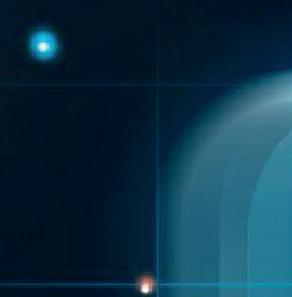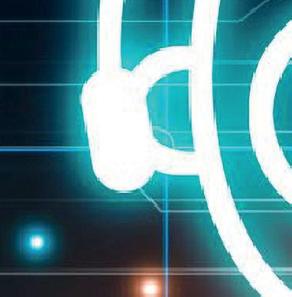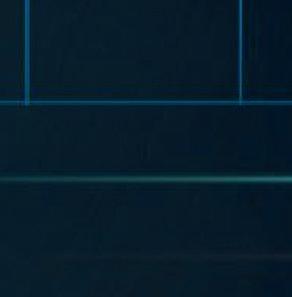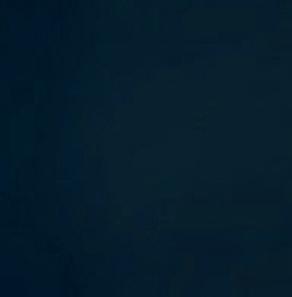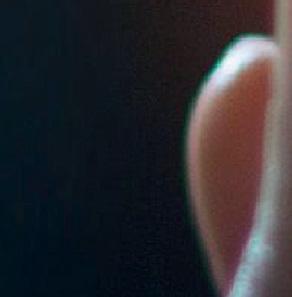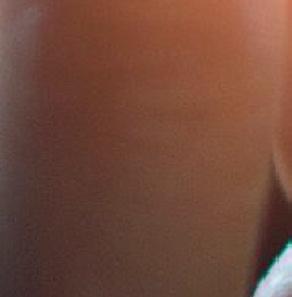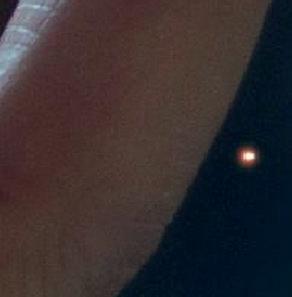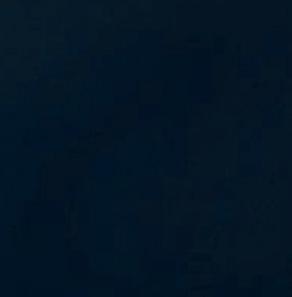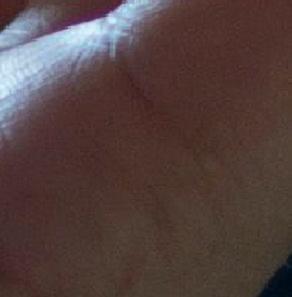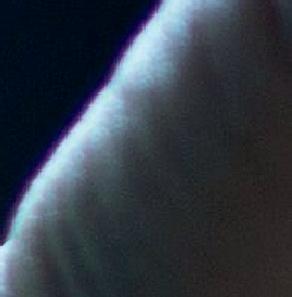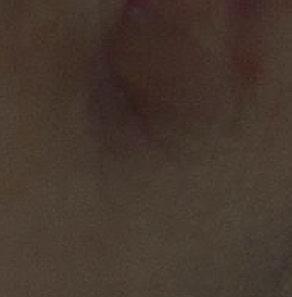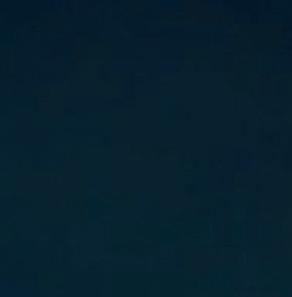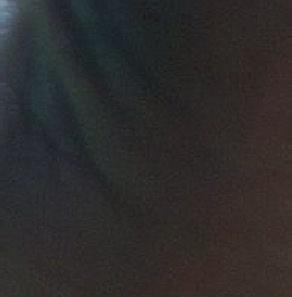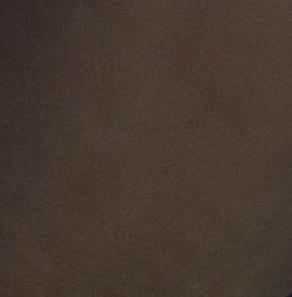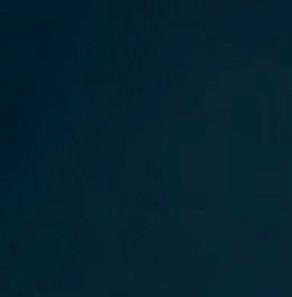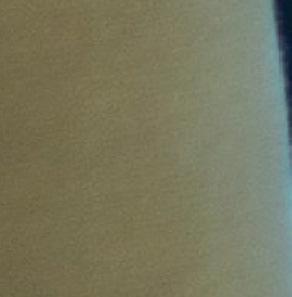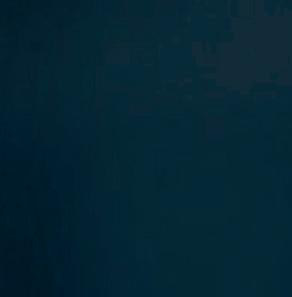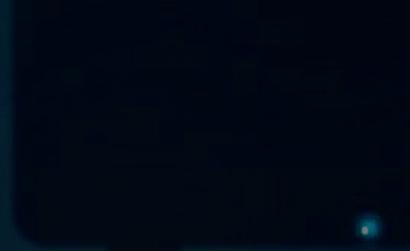






















































































































































THE FIRST WORLD WAR IS RAVAGING EUROPE. BY CONTRAST, DAVOS, THE NOBLE SPA TOWN IN THE SWISS ALPS, SEEMS LIKE AN OASIS OF PEACE. BUT BEHIND THE SCENES, IT TAKES CENTRE STAGE IN A BATTLE BETWEEN THE SECRET AGENTS OF THE WORLD POWERS. THE YOUNG NURSE JOHANNA UNEXPECTEDLY GETS CAUGHT BETWEEN THE FRONTS:


DAUGHTER, SHE GETS INVOLVED IN A DEADLY GAME AND SUDDENLY BECOMES THE TIP OF THE SCALES.
 Spy Drama 6 × 45 min
Produced by
Degeto
Spy Drama 6 × 45 min
Produced by
Degeto
Summer
STAR POWER: Hudson & Rex

Actor John Reardon and dog master Sherri Davis reveal what it’s like to work with Diesel vom Burgimwald, the canine star of this Canadian police procedural, as the show approaches its 100th episode.


WE NEED TO TALK ABOUT: Israeli drama











For 20 years, Israeli series have demanded attention from global audiences – both in their original form and in the remakes they have inspired. Those behind shows including Fauda, Prisoners of War and Tehran share their recipes for success.
18






ON LOCATION: Significant Other
DQ heads to Manchester to meet the cast and creative team behind this ‘anti-romcom,’ adapted from an Israeli series, which brings together two unlikely soulmates.


IN FOCUS: Those Who Stayed

Filmed in impossibly challenging conditions, Those Who Stayed tells six stories of people who remained in Kyiv after the start of Russia’s invasion of Ukraine. DQ speaks to the creative team to find out why and how they did it.
DQ100: Part Two 2023/24



























30


32








SCENE STEALER: Dance Brothers

Sherri Davis spill the secrets of working with Diesel vom Burgimwald, the canine star of Canadian police procedural Hudson & Rex, as the show approaches its 100th episode.




At the heart of any long-running drama lies the strong bond and on-screen connection between the central characters – or in the case of Canadian police procedural Hudson & Rex , one man and his four-legged partner.
First airing in 2019, the series introduces Charlie Hudson, a major crimes detective within the fictional St John’s Police Department. When German shepherd Rex’s human partner is killed in pursuit of a kidnapper, Charlie adopts him as his own and they start working together.

Four years later, the series is in production on its sixth season, which will include its landmark 100th episode. But after sharing the screen together for so long, how has the relationship grown between actor John Reardon, who plays Hudson, and Diesel vom Burgimwald, who stars on screen as Rex?


“It’s interesting because, in a lot of ways, we’ve still been doing the things that have worked from the beginning,” Reardon tells DQ. “That relationship is the anchor of the show. But the thing that’s interesting going into season six is that the relationship continues to evolve.
“When we first started, Charlie didn’t really know how to control Rex and they just didn’t know how to work together. Now we’re at the point where they intuit each other and his actions.”
Supporting the central partnership, a key figure behind the scenes has been dog master Sherri Davis, who adopted Diesel herself when he was just 18 months old. Working together with Reardon, she has an important say in how Hudson and Rex collaborate on screen to solve the case-of-the-week while also enhancing their own personal partnership.
after Reardon tells DQ. “That relationship is the anchor of the behind the scenes has been dog master Sherri Davis, who was with when he’ll just give a signal to Diesel and I’m like, ‘Oh


“It’s cool how John and I will feed o one another,” Davis says. “Well, I’ll feed o John because there are times now when he’ll just give a signal to Diesel and I’m like, ‘Oh shit, I wasn’t expecting that,’ and it works, right? It’s very cool how their relationship has grown.”
Hudson & Rex
is based on a similarly long-running Kommisar Rex , which


































German-language series called originally aired on Austria’s ORF from 1994 to 2004 before it was revived by Italy’s Rai between 2008 and 2015, switching the action from Vienna to Rome. The Canadian series, produced by Shaftesbury, Pope Productions and distributor Beta Film for CityTV, is also one of a handful of international remakes, including Inspetor Max


distributor Beta Film for CityTV, is also one of a handful of Komisarz Alex (Poland), (Portugal) and Rex (Slovakia).






Officially signing on for the show just three days before the cameras were set to roll, Reardon had to jam a lot of preparation into a short space of time to ensure both he and Diesel were ready for the first take. “One of the most important things for Sherri is that Diesel is comfortable with who he’s working with because, first and foremost, everything’s a safety issue,” he explains.
comfortable with who he’s working with because, first
“‘Will Diesel and whoever is playing Charlie have chemistry?’ That was the biggest thing when I arrived. Sherri wanted to find a way for us to spend time together and get to know each other so that
together










< relationship started to evolve. Diesel and I get along well because Sherri was creating the scenario for that to happen. I feel like my relationship with Diesel has grown a lot.”
That relationship has developed to the extent that Reardon can now command Diesel – a direct descendant of the original Kommissar Rex – and lead him around the set, such as when they need to return to their first positions for a new take.



“He’s learned the commands, and Diesel actually respects and trusts John enough that he’ll listen to him, which is good 99% of the time,” Davis says. “There’s 1% where he’ll be leaving the bullpen [in the police station set] and Rex is supposed to stay, but Diesel is off in a heartbeat.”
“He learns so quickly,” adds Reardon. “I don’t know how many times we exit the bullpen and Rex is on the perch and he just jumps down. He intuits it now – he just knows when that move is made. I had worked with other animals in the past, and it was a positive experience, but they weren’t nearly as capable as Sherri and Diesel. It’s a completely different experience.”

With more than 20 years of experience working with animals on set, Davis certainly has some empathy for the actors who find themselves paired up with a non-human co-star. And it’s not just the lead actors but the entire cast who must try to focus on their performances while Davis is o -camera giving commands to Diesel.








“In season one and two, I’d be apologising after every take because I’d be in their eyeline and I’m over there doing circus tricks, trying to work the dog and they’ve got to focus and deliver their line and ignore me – and sometimes I’m not the easiest person to ignore,” she jokes. “When we have guest actors, we try to tell them, ‘So you might hear me behind you saying something.’ And it never fails. As soon as I give a command, they turn and they look. And then it’s like, ‘Cut. No, no, you don’t look at Sherri.’ But these guys are pros. They’re fantastic with letting me do my art while they do their art.”
tell them, ‘So you might hear me behind you on set to see how a scene is coming any stunts, she will then coordinate with the art department to have a piece of the






During rehearsals, Davis will be on set to see how a scene is coming together and where the dog action will be included. But her own preparation starts as soon as she receives a script, which she will break down to find all the dog behaviours that are needed. If there are any stunts, she will then coordinate with the art department to have a piece of the set replicated that they can rehearse with. She also works with the episode director to choreograph Diesel’s
movements to ensure the scene can be filmed in the way they envision.
Davis doesn’t bring Diesel onto set until the cameras are ready. Until then, she will play Rex in rehearsals herself, unless a specific dog-only rehearsal is required. Diesel also does most of his own acting work, with only very specific moments where stand-ins will be used.

“Diesel is 99% of the show, but where you see a jump that’s over four feet high, it’ll be one of the stunt doubles – anywhere Diesel essentially could harm himself, but that’s not to say that the stunt doubles are not worthy of being hurt,” Davis says. “It’s no di erent for John. He’s the face of the show so he has a stunt double. Anything that puts their health in danger, we use stunt doubles, and it’s the same with the dogs.”
Heading into season six, Reardon says the challenge is to continue delivering what the show’s fans around the world – it has been sold into more than 120 countries – have come to love and expect, while also keeping it interesting with new storylines and ways for him to interact with Diesel. “We don’t want to keep doing the same thing. We want to push it,” he says. “Sherri and I are always talking about wanting to do more action or car chases.”
However, how much longer the series will run will come down to Diesel, with Davis keen to stress that the star works on his own terms. “Diesel just turned seven so if he decided that this was his last year, then it would be his last year. I’m never going to force my kids to work,” she says. “And it would be very obvious. He just would not come out of his trailer. If I say, ‘Go to work’ and they don’t get up and aren’t excited about it, then it’s like, ‘OK, I’m not coming today,’ and then I’ll have to figure that out at that time.
“But right now, when we say, ‘You’re going on a hiatus,’ he’s like, ‘Oh man, this sucks.’ For two days he’s good, and then it’s like, ‘OK, let’s go train,’ because he’s a working dog.”












“It’s true. He loves being at work and he really is excited to see the people at work,” Reardon says. “When he comes on Monday or any morning, the first thing he does is he walks around, says hi to everybody, and then comes over to where we’re supposed to work. He just wants to be a part of it. After he comes back from the weekend, he’s just excited to be back.”

Davis puts part of that excitement down to the bond Diesel now shares with Reardon, counting the actor as one of the few people she trusts to drive him in a car.
“In season one, John could have got punched, shot, yelled at, anything, and Diesel would have been like ‘Yeah, whatever,’” she says. “Now, I’ve got to be very careful in fight scenes or when John yells because, right away, Diesel’s like, ‘Don’t touch.’
“That’s their bond – I see that as him protecting John. His bond with John is really a true bond. It’s not a forced one.”



“ ”
Diesel loves being at work and he really is excited to see the people at work. He just wants to be a part of it.
John Reardon ActorFetch! Diesel shows off his suspect-apprehension skills Both Reardon and Davis have a strong bond with the pooch










For 20 years, Israeli series have demanded attention from global audiences – both in their original form and in the remakes they have inspired. DQ speaks to those behind shows such as Fauda, Prisoners of War and Tehran about their recipes for success.

 By Nicole Lampert
By Nicole Lampert









israel has become one of the television success stories of the streaming age – and its accomplishments are even more surprising when you consider that until the early 1990s, the country had just a single, government-run TV channel.
Today, the compelling stories to come out of Israel are told not only as remakes – such as Homeland and The A Word – but also, to the surprise of many of the country’s producers, in their original Hebrew language.

It was the massive success of Homeland – an American version of Keshet’s 2010 series Prisoners of War (Hatufim) – that Israeli TV executives pinpoint as one of the key turning points for the success of the industry in the past decade.

That had followed the huge popularity of Dori Media’s 2005 BeTipul, which was remade stateside as the award-winning In Treatment The drama, about a psychologist who requires psychological help, has been adapted in 17 countries ranging from Argentina to France, Brazil to Italy and Japan to Canada. Together, the success of the two shows alerted executives in the US
and other countries that Israel was a place that could come up with fantastic stories that could travel.
“It has been a decade that has seen huge growth,” says Karni Ziv, head of drama and comedy at Keshet, Israel’s biggest TV company, which operates a TV channel as well as local and international production arms.
As the producer of Prisoners of War (which can now be seen on Netflix), Keshet has always been at the heart of that growth. More recently, it has been behind successful coproductions of Rough Diamonds – which was a big hit for Netflix – and National Geographic and Disney+’s similarly successful A Small Light, about Miep Gies, the woman who helped hide Anne Frank and her family from the Nazis in 1940s Amsterdam.



“What we have seen change is the way it has gone from people adapting Israeli formats,” says Ziv, “to Israeli shows appearing on television and to our companies coproducing for the big streamers.”

Israel is a small country, with a population of nine million people. Many of its inhabitants don’t even

speak Hebrew as a first language, with Arabic spoken by 20% of the population and Russian by around 15%. That is one reason why Dori Media, another of the country’s big hitters, chose to make many of its shows in Spanish – the language spoken by half a billion people around the globe – when it first launched 30 years ago.
The company may have its headquarters in Tel Aviv, but it also has offices in Argentina, Mexico and Indonesia. Notably, of the 7,000 hours of TV in its catalogue, 4,000 are in Spanish. It is presently remaking its biggest ever hit – the 2007 Argentinian comedy drama Lalola, in which a womanising magazine editor wakes up as a woman. The show has been adapted in 12 other countries.
Dori is also creating ever more Israeli content, with an eye on the international market. Its hit thriller Losing Alice, which was shown on Apple TV+, is filming a second season, while spooky army thriller Hammam is likely to be the next to air.
It was the streaming revolution and, in particular, Netflix’s >

openness to foreign-language shows, that helped move Hebrewlanguage series into the mainstream. “The call went out from Netflix that it wanted shows in a foreign language, and it put Israeli series on the map – and not just Israeli but Asian too,” says Keren Shahar, CEO of Keshet International. “In the last five years, we’ve seen that people around the world are willing to hear different languages and are curious about different places in the world.”
Two shows in particular changed everything. Dori Media’s Shtisel, which was originally shown in Israel in 2013, and Fauda, which first aired in 2015, both took on new lives when they were added to Netflix. Shtisel, a love story set in Jerusalem’s ultra-orthodox community, and Fauda, about a commando unit that goes undercover to pursue a terrorist, could not be more different, other than the fact both are firmly rooted in Israelspecific experiences – and yet they became huge hits all over the world.
Shtisel became so popular that a third and final season was made in response to the international community of fans on Netflix. A Turkish version, with the religious Jews transposed into religious Muslims, recently aired to acclaim.







Meanwhile, Fauda, which was created by its lead actor Lior Raz and Avi Issacharoff, became a genuine phenomenon when it landed on Netflix in 2016, a year after it had aired in Israel. Interestingly, it has been a top 10 hit in many countries traditionally hostile to Israel, including Lebanon, Syria, Iran, the UAE, Bahrain and Qatar.
“Neither of us can really explain it,” says Issacharoff, who set up Faraway Road Productions alongside Raz. The company has more shows in the works with Showtime, Netflix and Apple, as well as a fifth season of Fauda being planned. “We think some of the reason Arabs like it is that half the show is in Arabic, so people feel pretty comfortable watching it. And I think they like that both sides are shown as very human. And we like to think the script is pretty good too.”
New local versions of Fauda are also being made, after an Indian adaptation launched earlier this year.
Donna & Shula Productions, the firm behind another big spy hit, Apple TV+ series Tehran, about a Mossad agent undercover in Iran, has had a similar experience, with the show’s stars and producers receiving many positive messages about Israel from
Laurie starring as a nuclear scientist in S3, which is due out later this year or early next year.

“Tehran is like a Hollywood Cinderella story,” says producer Dana Eden. “We’ve moved things on by being an Israeli company that is producing for an American streamer. And we are now producing to Hollywood standards, attracting huge international stars.”
All the producers cite different reasons for the success of Israeli television. The first is, prosaically, cost: an average Israeli episode for even a drama with guns and tanks can be made for around US$300,000 – a fraction even of many European budgets. Those tight margins mean scripts are often worked on for years to ensure there is no wastage.
fans in Iran. The company first found funding for the series after meeting investors at C21Media’s Content London, and when they put out their first two episodes there was a bidding war.
The third season of the show has just been filming in Athens, which fills in for Tehran, and is a coproduction with Apple. It has become such a huge hit that it has attracted an international cast, with Glenn Close featuring last season and Hugh





“We can’t use money to cover stories that aren’t quite good enough so the writing has to be really good,” says Ziv. “We devote a lot of time to the writing process. For one of our recent shows, A Body That Works [which is in talks to be adapted for another market], the scripts were being worked on for more than three years. And it shows, because when the series, which is about surrogacy, came out in Israel, it was a huge success and also a huge talking point.” Perhaps the final element is that many of these shows have authenticity. The two Fauda writers were in the military unit the show depicts, and many of the adventures seen on screen are ones they – or members of their unit – lived through. For Rough Diamonds, which was coproduced with Belgian production company DeMensen and is a top 10 show in 70 Netflix territories, the Israeli writers spent years getting to know the religious Jewish community in Antwerp they were writing about.
“When I’m speaking with writers, I tell them not to think about the international market, but just the market they know,” says Ziv. “The most successful stories find their ways to different cultures and different territories. The important thing is the drama; we have learned that if Israelis love a show, it is likely the rest of the world will too.”
The most successful stories find their ways to di erent cultures and di erent territories. The important thing is the drama; we have learned that if Israelis love a show, it is likely the rest of the world will too.
Karni Ziv KeshetApple TV+ spy series Tehran is set for a third season Historical series A Small Light
































































































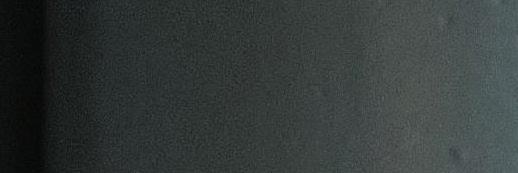












DQ heads to Manchester to meet the cast and creative team behind ‘anti-romcom’ Significant Other, an adaptation of an Israeli series that brings together two unlikely soulmates. But as ever, the path to true love doesn’t run smoothly...
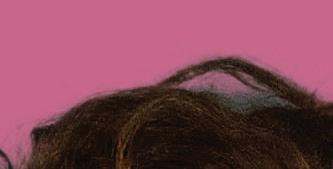














unlikely

“Nothing ever tips over into sentimentality or anything like that. It’s never violin strings and drama and all the rest of it. It’s a very unflinching look at relationships. People will be laughing at the comedy and crying at the truth.
As far as cinematic meet-cutes go, Significant Other might be the most unromantic example of all time, with a fair chance that one or both of the ITV comedy’s central characters might be dead before the opening credits roll.
Lonely and depressed, Sam (Youssef Kerkour) has just taken a handful of pills before getting into bed, where he waits to die. But he is interrupted when neighbour Anna (Katherine Parkinson) knocks on his door to politely explain that she’s having a heart attack and ask if she could come inside while she waits for paramedics to arrive.
Cut to the inside of an ambulance as both Anna, sitting with an oxygen mask strapped to her face, and Sam, lying prone on a stretcher, are being whisked to the emergency room.

It’s not a spoiler to reveal that both characters survive their ordeals, and what follows is a surprising, heartfelt and very funny story, based on the Israeli series of the same name, of two deeply flawed characters who embark on a hesitant, obstacle-filled relationship together.
When DQ visits Manchester to meet the show’s cast and crew in October 2022, filming is taking place inside the hotel apartment complex Native Manchester – housed in an iconic red-brick building a stone’s throw from the city’s Piccadilly station – where both Sam and Anna’s fictional apartments have been recreated.
“I really liked the scripts when I got sent them, and it just feels like we’ve delivered the scripts,”
Parkinson tells DQ during a break in filming.
“They haven’t been misinterpreted or distorted, because it was such strong writing that it was quite clear what the tone was and what the story was. And I’ve really liked working with David [Sant], the director, and Youssef.”
Parkinson describes the series as “quite unusual,” a comedy that is “bleakly funny yet
quite truthful.” “It’s just arrestingly di erent from anything that I had read, perhaps because it’s not British and I find it surprising and funny,” she says.
Significant Other ’s sadness can be found in that first meeting between Sam and Anna. But after that, the show presents them as two lonely people who are having a rough time and can’t see that the person who might make them happy just happens to be standing right in front of them.
“It’s never quite the Richard Curtis romcom you want,” Parkinson says. “I don’t even think they know they’re lonely, but it is an urban tale of loneliness in a communal living situation. And it’s about hope, really, because out of their slightly broken lives comes this new relationship that is mutually beneficial when they let it happen.”
It seems romance can come from the most surprising places, not least when you’re in hospital holding a stool sample with a cannula in your hand, a cigarette in your mouth and wearing a gown.
“Essentially, it’s a will-they-won’t-they. But it’s really bleakly comic. It’s sort of anti-romantic,” Parkinson adds. “There’s a bit when, after we’ve had sex, he accidentally punches me and elbows me in the face when he’s weeping about his life. That’s the sort of thing that happens, and it just feels surprisingly truthful.”
Kerkour agrees there is a dark side to the humour in Significant Other , but says it comes from the absurd situations in which the characters find themselves.
“It’s a very, very unconventional love story,” he says. “That’s how people have put it. It’s the underside of the romantic image, but it still goes somewhere people can relate to.”
Sam, he explains, is trying to reclaim his lost youth by breaking up with his wife Shelley. But Kerkour believes that, rather than being in the grip of a midlife crisis, his character has simply never grown up, having everything he could want and then walking away from it all.
>

Youssef Kerkour ActorYoussef Kerkour and Katherine Parkinson lead the Significant Other cast Katherine Parkinson Actor

“He goes back to some sort of 14-year-old adolescence where he’s literally just walking emotion and can’t do anything,” Kerkour says. “So he’s reactive, he’s emotional and all his flaws and weaknesses are laid bare. But when he wants it all back, it’s too late.”
Notably, Kerkour ( Home , Stay Close ) is pleased that Significant Other ignores his Arab background, rather than highlighting it as has been his experience with some shows in the past. “I’ve been enormously chuffed to play someone whose heritage is what it is but it’s not ever spoken about,” he admits. “For me, that’s what I’ve always identified as progress, when we see it on our screens and we don’t highlight it and talk about it. He behaves more like an Englishman than he does an Arab, and I love that. I’ve loved being in that world.”
The actor first met Parkinson over lunch, and he describes his on-screen partner as “the most perfectly well-rounded performer I’ve ever worked with,” noting her ability to shift from the comedic to the dramatic in a single beat. They also bonded over a shared love of coffee.
“She’s known as a comedic actress, but she’s actually a lot more versatile than that and has phenomenal emotional recall,” he says of his co-star, whose comedy credits include a lead role in hit sitcom The IT Crowd . “When you act opposite somebody like that, they make you a better actor –and she has without a doubt made me better just in the time we managed to spend together.”
The cast also includes actor and singer Kéllé Bryan ( Me & Mrs Jones ) as Shelley and Ben Bailey Smith ( Andor ) as Anna’s ex, Damien, plus Mark Heap ( Spaced ), Sue Vincent ( Alma’s Not Normal ), Shaun Williamson ( Extras ), Olivia Poulet ( Doc Martin ) and Will Ash ( Death in Paradise ).
had become disillusioned with their relationship and announced he wanted to see other people.

“That to her is shocking and stuns her,” she says, “because it’s like, ‘Hang on, I’ve done all of this, we’ve sacrificed all of that. I’ve now got my career back. We’re in a really good place, the children are older now and they’ll be going o and we can go back to going on holiday and doing the things we really want to do’ – and he’s like, ‘I’m o .’
“She knows who she married. He’s a bit of an oaf, and incredibly untidy, but as married couples do, you deal with that because you love the person and you want to keep the family together. But this is not what she was expecting at this point in her life. So she’s dealing with the shock in a very forthright manner. He’s made this mess, but she’s still cleaning it up.”
Bryan believes many viewers will see aspects of their own lives in the situations Sam and Anna end up in, just as she has in Shelley. “And that’s what’s funny. You’re enjoying a really good story that you can empathise with, and then you find it’s just really funny. I give the credit to the writers and Youssef, in terms of his performance, which is just outstanding. I haven’t actually met a talent like Youssef in a very long time. He has this old-school head of Fawlty Towers and the physicality of a Jim Carrey, but in a very modern, contemporary sense. It shouldn’t be funny, but it just is.”
Meanwhile, Bailey Smith appears in episode four as Damien, who pops up at Anna’s grandmother’s funeral as an old flame hoping to reignite their relationship.
“He’s married, so he’s operating on a pretty sly level. But she knows that and they’ve had dramas before. But he really does feel strongly for her, even though it could never work,” the actor explains. “He’s not the most trustworthy person on the planet but, at same time, the way he feels about her is genuine and he finds her, unbeknown to him, at a vulnerable juncture. They’re only going to end up in one place, basically, and you’ll see all of that over the course of the episode.”
Shelley, says Bryan, is a hard-working estate agent who put her career on hold to start a family with Sam. Then when their children were old enough for her to return to work, she found Sam

enough



Bailey Smith, a musician and rapper also known as Doc Brown, agrees that describing Significant Other as a romcom sells the show short. “It is just trying to get to the nub of these two central characters, Anna and Sam, in the most useful way it can,” he says. “And the nature of real life is that there’s humour in absolutely everything, even a funeral. That’s what it’s staying true to, rather than being overtly a comedy, a romantic comedy or a drama. Audiences are OK with that now. I don’t think people are bothered too much about pigeon-holing; they’re more interested in story and character.”

It’s an urban tale of loneliness in a communal living situation. And it’s about hope, really, because out of their slightly broken lives comes this new relationship that is mutually beneficial when they let it happen.

















< Produced by Quay Street Productions, Significant Other is written by Dana Fainaru and Hamish Wright, who first met when they worked on British medical drama Casualty . Wright started as a script editor in 2008, and the first script he edited was one written by Fainaru.
They had tried to develop projects together over a number of years, without success, until they secured a deal with executive producer Nicola Shindler ( Nolly , It’s A Sin ) when she was still at Red Production Company. That meeting, however, came the day before the UK went into lockdown amid the Covid-19 pandemic.
Fast-forward two years and Fainaru had watched Significant Other in its original Hebrew. She loved it, but thought it could never work in the UK. Then when Wright got hold of a subtitled episode and he too fell for it, they went back to Shindler – who was by now at the helm of her own company in Quay Street – with a pitch to remake it.
“I did that and I swear Nicola got back the next day and said, ‘Love it. Let me talk to the production company and get the rights.’ And it’s moved so fast,” Wright says. “Quay Street has a first-look deal with ITV, so it just landed with [head of scripted comedy] Nana Hughes at ITV. She really responded to the pitch document, they commissioned a script, we did the script, then we got the cast attached and got the green light.”
Rather than a meet-cute, Wright describes that opening meeting between Sam and Anna as a “meet-horrible.”

“Dana and I are mainly drama writers. This is the closest
director Sant, with whom they worked on Hitmen and Home , respectively. And on set, Parkinson says filming was quite intense due to the fact that a number of scenes are very long.
“There hasn’t been a lot of sitting around chatting, but we’ve done quite a lot of it in these flats so it’s been quite focused and a lot of laughs,” she says. “But I’m looking forward to finishing and not having to learn another line for about six months.”
Producer Debbie Pisani says the ambition behind the shoot was to create a thoughtful comedy, complete with long pauses and scenic shots that dispel with the usual rhythm of a television sitcom. “It is very funny in parts but not in the traditional sense,” she says. “As soon as I read the first script, I was hooked. I was like, ‘This is really good.’ Just the opening scene grabbed me.
“It’s a story about an unlikely couple of neighbours who get together – or don’t, but who form a friendship in their mid-40s. So it’s not your usual young 20-somethings, it’s people who’ve been around, are a bit more life-savvy and have baggage and have been hurt. So they are more cautious. Anna is someone who needs to open up and Sam is someone who needs to grow up.”
Pisani likens Significant Other to a show she previously produced, Daisy Haggard’s Back to Life , which was “similar in that it was funny but it also had a lot of emotion, and we didn’t shy away from the sadness or the pain,” she explains. “This show is also about loneliness, and both Anna and Sam see something in each other but don’t immediately connect. I love the fact that it was about the middle passage, about people who have been out there, done it, had kids and they’re on their second go.”
we’ve come to comedy. The Israeli original was absolutely brilliant, but very austere, almost dry and deadpan. We’ve warmed it up a bit, which feels appropriate to not only the UK audience, but the time we’re in as well.”
One way they have localised the series is with Bryan’s character Shelley, who Wright says is “very hard-edged” in the original but is now a more sympathetic figure.
“It’s interesting that the American version of The Office , when they’re most faithful [to the original UK series] in those early seasons, they’re not all that effective,” he continues. “Their first episode was very much beat-for-beat, and our episode one is quite faithful too. But as we go on, it’s diverge, diverge, diverge.
“Hopefully it is truthful. I hope that it’s funny and it’s sad and has got heart and emotion. That’s what we set out to do,” he adds. “That’s what we absolutely put on the page. And with Katherine and Youssef, it’s a real showcase for two people at the top of their game.”
Significant Other reunites Parkinson and Kerkour with
One scene called for Kerkour to stand on a ledge in the rain before having to fall backwards onto crash mats several metres below. “It was absolutely freezing, so I want people to know that I suffered,” he jokes. “But that was a fun day. Likewise, eating a vegan egg-and-bacon sandwich. I ate 12 sandwiches. On Home , I ate 27 sandwiches for one scene, so I’m very adept at eating sandwiches. I got to do a lot – there’s a pack of jelly babies in one scene. They all went. So it’s been quite a rich eating experience for me on this show, which I’m happy to repeat any time. Anytime, anywhere, I’m available.”
When the show launches on ITVX, Kerkour says viewers should expect the word ‘real’ to come up a lot.
“Real life is like this. The person that’s for you might be standing right in front of you and you wouldn’t even notice it because your problems and issues dominate,” he notes. “But nothing ever tips over into sentimentality or anything like that. It’s never violin strings and drama and all the rest of it. It’s a very unflinching look at relationships. People will be laughing at the comedy and crying at the truth.”

Filmed in impossibly challenging conditions, Those Who Stayed tells six stories of people who remained in Kyiv after the start of Russia’s invasion of Ukraine. DQ speaks to the producers and filmmakers behind the series to find out why and how they did it.



When Russia launched its invasion of Ukraine in February 2022, millions of people fled the country to find safety and shelter across Europe. According to the Centre for Research & Analysis of Migration, almost 22 million people have left Ukraine in that time, though more than 13 million have since returned.


Of course, in a country of around 41 million, many more remained and saw their lives changed forever under bombardment of missiles and ground troops.
The experiences of those living in the capital, Kyiv, during the initial days and weeks of the invasion have now informed Those Who Stayed,
a six-part fictional anthology series tackling a range of different subjects by a roster of leading Ukrainian talent in front of and behind the camera.
Produced by Ukraine’s Film UA and distributed by Red Arrow Studios International, filming wrapped in May after a six-week shoot – a remarkable feat considering the invasion began just 15 months earlier.




“Now we have completed production, it seems even more magical because the reality is that even in normal times, it’s not often you can do a TV series in a year,” producer Kateryna Vyshnevska, Film UA’s head of development and coproductions, tells DQ. “The war started at the end of February last year and, for at least a month,
everyone was in a state of a shock. The whole [television] industry stopped but, on a personal level, each one of us was dealing with our own individual circumstances and trying to get to safety and worrying about families.
“For a month, maybe more, it was not even possible to think in terms of what we would do next. You are in this survival mode.”

But when survival gave way to anger, the team at Film UA harnessed a determination to get back to work and to continue to tell stories – stories that would immediately become more meaningful to people both in Ukraine and around the world.
“The war made everyone realise we are in this together, it is not just

in Ukraine. It really does affect every single one of us, at least in Europe,” Vyshnevska continues. “That’s when we started to think, what kinds of stories can we tell and what kinds of stories do we want to tell? Then on the other hand, what kinds of stories can we actually film right now and where do we get the money?”
Before the war, high-end Ukrainian drama productions would often rely on international partners for additional finance, and this continued to be the case after the invasion began. Vyshnevska pitched Those Who Stayed to executives at Red Arrow and the distributor became their first major collaborator.
“Those Who Stayed spoke to them,” she says. “It is about the war
but it’s also about more than that. It’s too early to be talking about the war experience. We haven’t processed it yet. It’s not the time. One day it will come. But we also don’t want to be defined by the war. It happened to us, but it’s not all we are.
“We wanted to talk about the humanity of it and what happened to us as people when the war started – the reasons we found inside ourselves and our families and our communities to keep on going. It is ultimately about hope.”
Film UA had already envisioned the format for the series – six different stories told by different writers and directors, with each one inspired by real experiences. Then, when Red Arrow signed on, it fully
financed all the scripts. Several Nordic broadcasters then joined as coproducers, namely SVT in Sweden, NRK in Norway and YLE in Finland, Denmark’s DR, Iceland’s RUV, France Télévisions and Lumiere in Benelux also picked up the series.
“There was a huge leap of faith from everyone,” says Vyshnevska. “There was a lot of passion, a lot of belief and then it just happened. The creative team had so little time that I don’t know how they did it. Everyone was giving 200%.”
On the ground, the production was overseen by Vyshnevska and Anna Eliseeva as producers alongside showrunner Anastasiia Lodkina. In making the series, Lodkina felt it was important to talk about not only

L-R: Those Who Stayed features six separate episodes, including Biliy (aka The Homeless), KyivBerlin and Family

We wanted to talk about the humanity of it and what happened to us as people when the war started – the reasons we found inside ourselves and our families and our communities to keep on going. It is ultimately about hope.
Kateryna Vyshnevska Film UA< death in a time of war but also life and the people who live against the backdrop of conflict.
“They stayed with their children and their animals and stayed to do the work that still needs to be done. But the lives of these people are not just all drama,” she says. “There is a place for love, everyday things, minor conflicts, humour and a lot of space for hope that everything will be fine.”
The stories that make up the series include one about Eurovision superstar Verka Serduchka, who stayed alone in the very centre of Kyiv and live-streamed online almost every day. Another is about a friend of Lodkina who had to take shelter with her two children, her husband and her ex-husband.



“I offered a set of stories to the directors and they either chose something from the list or offered their own story,” Lodkina says. “As a result, three directors wrote the stories on their own, and in those cases our showrunning and production intervention was minimal. Our goal was to give them creative freedom to maximise the realisation of their voice. I wrote two stories myself and co-wrote one more. These stories were adapted into films by directors with whom I really wanted to work.”
But while the scripts were being written, Eliseeva wondered whether it would even be possible to produce the series amid the constant stream of attacks on the Ukrainian capital. “There was a lot of stress and responsibility because we had a time limit, budget limit and human resources limit and a huge production plan,” she says.

“We had six teams, shooting in two stages, so it was very stressful. I don’t know how we managed really – almost 400 people were involved in the project overall – but we did it.”


Early on in development, there were also discussions about filming Those Who Stayed in Ukraine’s southern neighbour, Moldova. But ultimately, it was important to make the series as authentic as possible. Shooting in Kyiv was the only option, but that threw up numerous logistical questions about just how the series might be shot.
Permission had to be sought from the Ukrainian military and the Kyiv city administration, while every filming location needed to be close to a bomb shelter in the event the
city’s air raid sirens would begin suddenly.
“It gave us a lot of challenges to find the places we wanted, but we had four location managers –they’re the best in Kyiv – and we got everything we wanted,” Eliseeva says. “The exception was filming underground. In the case of attacks, people go underground, so we couldn’t shoot there.”
challenging episode was In the Zoo, which was filmed at the XII Months zoo 30 kilometres north of Kyiv.
Artem Lytvinenko (The Sniffer) wrote and directed the episode, which follows what happens when the zoo is cut off from the outside world by Russian troops, putting the animals and workers in grave danger.
production team wanted

















The timing of the shoot was particularly important, as the production team wanted to mirror the weather conditions from the time of the real stories. Had they missed their mark, filming would have been delayed by a full year. “But you can’t do that because this story is really topical, it has to be told now,” Vyshnevska says.
Lodkina picks up: “We were filming in Kyiv, far from the actual war zone, but there were enough challenges, working around wartime restrictions and the curfew. What if the electricity is cut off? What if there are missile attacks during the filming? What if the Russian army starts an offensive on Kyiv from Belarus? What if no one in the world is interested in our series and our stories?
“But we did it. We filmed the series, even though during one of the shooting days the whole group had to sit in a bomb shelter.”
Perhaps unsurprisingly, the most



“When Anastasiia told me the format, I thought it was a good idea because I didn’t want to shoot a film about the war now. It’s too early,” Lytvinenko says. “We need time to think about it and reflect on it, and after a few years have passed, then we can film about the war. But stories of those who have stayed here are interesting, and I connected with guys from the zoo who told me about how they tried to save the monkeys. It was very relatable and emotional.”
Condensing the story into a 30-minute episode presented a challenge even before filming began on location at the zoo, where one worker who had been there during

the real occupation was on hand to guide the production and facilitate their work with the animals, including Archie the Rhino and Lyosha the Camel.


“Once, when we finished shooting in the middle of the night, we had to stay in the zoo until the morning,” Lytvinenko says of the curfew rules. “But it wasn’t a big problem. More of a problem was that I wanted to shoot the Dnieper River. The dam was destroyed and it looks scary and really dramatic, but the military said we couldn’t shoot there because there might be bombs in the water or the lowlands.”
Meanwhile, writer Tala Prystaetska (Love in Chains) made her directorial debut with Moms. Inspired by a real couple she knew, the story introduces a young boy and his two mothers, who must decide what to do once the invasion starts but struggle to answer their son’s questions about the attack.

“All children can feel calm and safe when the adults have answers about what to do. But when the war started, we didn’t have those answers,” she says. “We only had doubts and a lot of fear. As a mother, I can say that you need to stay calm, but you know nothing, about your future or even the next few minutes. You only hear the noise of drones and helicopters, and you don’t know if it’s your last minute with your child or you have the chance to live.”
Filming during a war, Prystaetska says, is “the greatest of challenges.”

In the Zoo brought the added complication of working with real animals

Written by Anastasiia Lodkina, directed by Katya Tsarik and starring Vyacheslav Dovzhenko and Viktor Zhdanov
A world-famous singer, known as his drag persona Verka Serduchka, does not run or hide from the war. Instead, he stays home alone in the very centre of Kyiv, where he live-streams every day and becomes the public symbol of Ukrainian resistance.
Written by Anastasiia Lodkina, directed by Aleksey Yesakov and starring Kateryna Varchenko, Roman Lutskyi and Taras Tsymbaliuk
Olga, her two kids, her husband and her ex-husband have to live together in a tiny one-room apartment. They try hard to survive and not to kill each other in the process.
Written and directed by Tala Prystaetska and starring Oksana Zhdanova, Antonina Khyzhniak and Oleksandr Ladyka
Of course, safety was the top priority, not least because a child was among the leading actors on her episode, while she also couldn’t shoot scenes from a drone or at a real hospital. Care and attention were also paid to the residents in neighbouring buildings to ensure they weren’t disturbed by the production more than was necessary.


But for Prystaetska, the chance to take part in Those Who Stayed was an opportunity to tell stories about ordinary people in the most astonishing circumstances, and to bring viewers closer to the situation millions of people in Ukraine have faced over recent months.
“It is not about extraordinary people. It’s just about people who can live next to you, and maybe you could be in their place,” she says. “Everyone can understand what it is to feel in danger, to feel uncomfortable or scared. We talk about very understandable emotions. Yes, the reason is war, but it could be anything. That’s why I think it can be relatable for a lot of people.”
“We hope everyone will truly see us, free people of a free country,” adds Lodkina. “They will see that Ukraine is part of the European family, and not the little sister of the abusive neighbour state, as we ourselves and others have been convinced for many years before. They will see that we have great talent – writers, directors, actors. So let’s win first and let’s continue to be friends. Let’s make films, not war, together.”
Seven-year-old Egor lives with his two mothers, one of whom is a surgeon at the children’s hospital. Every time the air raid sirens sound, Egor puts on his bike helmet and hides in the bathroom. He is fighting with rockets, bombs and his own fears with the help of his imaginary friends – animated birds from a computer game.
Written and directed by Artem Lytvinenko and starring Oleksandr Rudynskyi, Lilia Tsvelikova and Viacheslav Babenkov
Max is a zookeeper at a private zoo on the outskirts of Kyiv. He is not a fan of his job, and February 24 is supposed to be his last day. But when Russian troops surround the area and blow up a bridge, the zoo is left without electricity and food, and the animals are on the verge of death. Max wants to help, but his evacuation plan turns into a suicide mission.
Written by Sergiy Luschik, directed by Valentin Shpakov and starring Fabian Mannel and Maria Stopnik
Klaus is a young German surgeon. When the war starts, he drives to Kyiv to whisk away his Ukrainian girlfriend. But she refuses to flee, so Hans also stays, inspired by the volunteer movement, until one day he finds himself badly wounded.



Written and directed by Pavlo Ostrikov and starring Yaroslav Bezkorovainyi and Mykhailo Korzhanivskyi

Yura is homeless and living in his car with his 10-year-old son. He has already fled from the war once, and when it catches up with him again, he decides not to run, but to fight – for his son and for his neighbourhood. He wants to join the territorial defence forces, which proves to be difficult for a homeless person with no documents. DQ










THIS ESPIONAGE THRILLER COMING TO PARAMOUNT+ BOASTS AN A-LIST CAST, including Zoe Saldaña, Nicole Kidman, Laysla De Oliveira and Morgan Freeman. In a story rooted in real life. De Oliveira plays Cruz Manuelos, a rough-around-the-edges but passionate young Marine recruited to join the Lioness Engagement Team to help bring down a terrorist organisation from within. Meanwhile, Saldaña plays Joe, the station chief of the Lioness programme, who is tasked with training, managing and leading her female undercover operatives.

In the second part of the DQ100 2023/24, DQ picks out a range of shows to tune in for and the actors, directors and writers making them, as well as some of the trends and trailblazers worth catching up with.











CANADIAN MARTIN MIGHT BE BEST KNOWN AS A STAND-UP COMIC AND AS THE CREATOR AND STAR OF BITTERSWEET COMEDY FEEL GOOD, but they’re entering the world of thrillers for their latest project, Netflix’s Tall Pines Martin is the creator, co-showrunner and star of the limited series, which is set in a bucolic but sinister town and explores the insidious underbelly of the “troubled teen industry” and the eternal struggle between one generation and the next. Martin describes it as “an insane roller coaster and so different from anything I’ve done before.”



























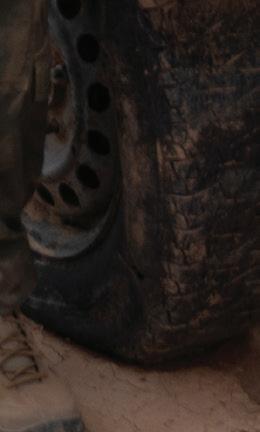










latest project, Netflix’s co-showrunner but and the next. Martin






ONCE THE HOME OF STAGEY DRAMATIC RECONSTRUCTIONS THAT FILLED SEGMENTS BETWEEN ‘TALKING HEAD’ HISTORICAL EXPERTS, docudramas have evolved in recent years. This is best exemplified by producer Nutopia’s approach to its recent Netflix series African Queens, which in two seasons has dramatised the stories of Njinga and Cleopatra (pictured above). The historians and voiceovers – here from executive producer Jada Pinkett Smith – remain, but Nutopia has honed a “creative mash-up” that flips the script on docudramas by bringing together factual producers and academics with top writing talent to create dramas that use historians to add context or move the story forward. With interest in fact-based scripted series at an all-time high, this approach to history docs looks set to be the future.
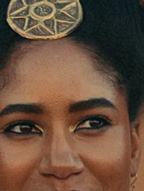







WHEN BARBARA MET ALAN AND HELP STAR HUGHES IS SADDLING UP FOR SHARDLAKE, a Disney+ adaptation of CJ Sansom’s Tudor mystery novels. He plays Matthew Shardlake, a lawyer with an acute sense of justice and one of the few honest men in a world beset with scheming and plots. Despite Shardlake’s unwavering loyalty to his boss Thomas Cromwell and the Crown, his position in 16th century English society is unfavoured due to his appearance – as a person living with scoliosis during the Tudor period, he suffers the indignity of being abused as a ‘crookback’ wherever he turns.
The series, based on the first novel in Sansom’s series, sees Shardlake called to investigate the murder of one of his commissioners at a monastery in the remote town of Scarnsea.








Hughes, who became the first disabled actor at the Royal Shakespeare Company to play Richard III, has also starred in The Innocents











BOSNIAN-SWEDISH DIRECTOR KAPETANOVIĆ’S RECENT TELEVISION CREDITS INCLUDE SWEDISH THRILLER CALIPHATE, crime thriller Darkness: Those Who Kill and true crime series Knutby He is now partnering with writers Alex Haridi and Lotta Eriksson for Stenbeck, a biographical drama about controversial businessman Jan Stenbeck, produced by FLX for broadcaster SVT and expected to air in 2025. The five-part series will follow Stenbeck as he reluctantly takes over the family business and turns it into a pioneering media empire that changes Sweden and the world – but Stenbeck also makes enemies and pays a high price for his success.

HEAD TO DRAMAQUARTERLY.COM FOR THE REST OF PART TWO OF THE DQ100 2023/24, FEATURING...






ACTORS
Wunmi Mosaku, Dina Shihabi, Richard Rankin and Rose Ayling-Ellis




DIRECTORS

Joelle Mae David, Alon Zingman, Glendyn Ivin and Michael Sheen



Georgia Lester, Oskar Soderlund, Tig Terera and Camilla Whitehill

Pauline, Salmon Island, Scener efter äktenskap (Scenes After Marriage) and All the Light We Cannot See





TRENDS & TRAILBLAZERS

Disappearing content, I Am, Musical dramas and Taylor Sheridan





The International Emmy-winning director, who is also the founder of Glasgow-based Compact Pictures, picks half-a-dozen shows that blend mystery, comedy, murder… and puppets.

Captain Scarlet & the Mysterons
Beating out Jon Pertwee in Doctor Who, and even the original cardboard-sets Star Trek, my first TV crush was on an indestructible puppet. The plots were forgettable, but the cars, planes and floating Cloudbase hangout – plus the absolutely on-point 1960s Courréges team uniforms – were a delirious dream of an expanded story universe, long before we started talking that way. I still can’t describe a rapid intercut sequence to a picture editor without saying, “You know, just like: bum-bam-bum da-da-da-bum!”
Swarm
When you encounter a show made from a completely different perspective than your own, it can be startling and head-spinning. This wildly divergent murder-spree drama from Donald Glover, of Atlanta had me binge-watching past three in the morning at first contact, slack-jawed with admiration and tension.
Pistol



It’s rare that TV can do rock music with any authority – it’s like a whale trying to tap dance, as Daisy Jones can only attest – but Danny Boyle’s chunky, punky reimagining of 1976 London makes deft work of re-casting the familiar faces of the new-wave scene as variously young, likeable, in love


and stupid, via the master stroke of riding in on Steve Jones, the famously non-famous Sex Pistol.

Dark
My wife is German, so half of my evening watch is from the Bundesrepublik, whose dramatic chops are often underrated in the wider market. Baran bo Odar and Jantje Friese’s existential mystery – half science-fiction, half family mystery, ultimately a prog rock album of endlessly spiralling
fractal timelines – turned me on to the powerful new talents breaking through the conformity of Euro TV. Don’t go in the cave, kids!
Toast
Now a staple of the comedy world, Matt Berry’s solo outing is a tourde-force of ‘What were they on when they locked themselves in a room and scripted this?’ Also featuring perfect turns from Robert Bathurst and Doon Mackichan – not a supporting cast combination you see every day – season one is a permanent download for me, and still makes me laugh until my nose runs.


Novelistic and absolutely TV-doingNY-indie-drama, this midlife crisis series became essential in my home because of the unsung side-stage performance of Lizzy Caplan – a true example of unshowy, detailed brilliance that creates a relationship of trust and friendship with the viewer that keeps you coming back for more.

Swarm had me binge-watching past three in the morning at first contact, slackjawed with admiration and tension.Acclaimed German series Dark
fame, and Janine NabersJohn McKay Lizzy Caplan in Fleishman is in Trouble 1970s-set music drama Pistol Donald Glover’s Swarm












Director Taito Kawata dissects a key scene from Netflix’s first original Finnish drama, in which two brothers struggle to make a living as professional dancers and decide to open their own club – only to find their artistic drives threaten the business and their relationship.
The season finale of Dance Brothers culminates in a mesmerising dance performance at the renowned Helsinki International Dance Festival. I have a background in directing music videos, so I know how important it is that the dance has a purpose in the overall narrative and delves further into the characters.

Dance Brothers centres on siblings Roni (Roderick Kabanga) and Sakari (Samuel Kujala), who are struggling to make a living as professional dancers. To help finance their dance dreams, they decide to start their own club, which provides income, housing and a training space. Their unique club and impressive dance routines quickly bring them fame.
But soon, artistic ambitions and personal relationships collide with commercial demands: it’s business versus passion. The loyalty and love the brothers have for each other will be tested by the one thing that always united them – dance.




This young-adult drama series, a coproduction between Netflix and Finland’s YLE, was created and produced by Max Malka at Banijay’s Endemol Shine Finland. It is available now on Netflix and will air on YLE at a later date.
Here, director Taito Kawata outlines a pivotal scene from the show’s final episode.
This grand event serves as the pinnacle of achievement for our main protagonists, the gifted and determined brothers Roni and Sakari, and I wanted it to be perfect. The fact it was filmed at the iconic Temppeliaukio Church, one of Finland’s most revered architectural marvels, also added pressure.


The brothers encounter numerous obstacles on their journey, but securing a place in the festival programme proves to be their biggest challenge. The episodes preceding this scene really build tension, so the audience slowly sees Sakari, the younger brother, succumbing to the overwhelming pressure, weighed down by recent events.
The initial choreography showcases modern dance at its best, with its flawless execution captivating the audience. However, it becomes apparent that something is amiss with Sakari. As the dance unfolds, he suddenly loses control and engages in a fierce altercation with his brother. The performance undergoes a transformative shift, blending dance and an aggressive confrontation, leaving the bewildered audience uncertain of the true
nature of the spectacle before them. It becomes a performance that is surprising, physically intense and emotionally charged — a fusion of contrasting elements never witnessed by the festival audience before.



We worked closely on this with respected choreographer Ima Iduozee to seamlessly integrate authentic modern dance with coordinated fight sequences. It becomes a crucial turning point where the bonds of brotherhood are on the verge of rupture. The intensity of Sakari’s actions deeply infuriates Roni, who has been grappling with his own mental health from the outset. In the heat of their battle, Roni finally reaches breaking point, delivering a decisive blow to Sakari that momentarily transports us into his psyche – a murky swamp where he finds solace and concentration, and creates his art.
Within this profound moment, Roni experiences a revelation that shatters his previous perspective. He realises the need to release his grip on his brother and allow him the freedom to pursue his own desires and aspirations. We wanted the scene to convey the emotional underpinnings of the dance and for this internal revelation to be apparent. So in the final part of the choreography, Sakari takes the lead. We saw them stumble, confront one another and reconcile – but instead of dialogue,
we chose dance as the medium. The audience, caught between astonishment and confusion, witnesses this cathartic transformation with a mix of awe and intrigue.








To bring this complex scene to life, the rehearsal process spanned several weeks as we meticulously dissected each segment in collaboration with Iduozee. And as it was filmed in such an iconic and beloved venue, we also had to consider the precise stage management within the Temppeliaukio Church.
Filming required careful planning and execution. The crew dedicated two entire days, using two cameras, to capture all the small details and ensure the scene looked as visually stunning and powerful as it felt emotionally.


“
”
The rehearsal process spanned several weeks, meticulously dissecting each segment in collaboration with choreographer Ima Iduozee.
Taito KawataDance Brothers’ central siblings are played by Roderick Kabanga (left) and Samuel Kujala
WOULD ARTIFICIAL INTELLIGENCE HAVE DELIVERED THAT FANTASTIC SUCCESSION FINALE, created a villain as horrible as Bad Sisters’ abusive John-Paul or written dialogue as naturalistic as that in Shane Meadows’ standout historical drama The Gallows Pole?
Perhaps an even more pertinent a question is, if it had, would we even know?
Writers shouldn’t be worried about being usurped by technology –yet. But anyone who spends any amount of time at a computer screen will know just how quickly advancements online can move.
Until it became a central part of the negotiations between the Writers Guild of America (WGA) and studio body the Alliance of Motion Picture and Television Producers (AMPTP), fears about the impact and encroachment of AI on the creative arts were largely confined to the worlds those writers had created on screen.
From classic German feature Metropolis, which was released in 1927, to 2001: A Space Odyssey, Blade Runner, Star Wars: A New Hope and more recent hits such as The Matrix, Ex Machina and Interstellar – not to forget television series such as Westworld – AI has become a common feature of sciencefiction storytelling.
Notably, bringing to life sentient AI – whether in the form of a blinking red eye called Hal 9000 in 2001 or humanoid robots sent back from the future in The Terminator – doesn’t tend to end well for the people in the story.
But now, with the advent of AI chatbots such as ChatGPT, AI has never been more accessible. While scientists and engineers continue to develop new advancements in healthcare, motoring and manufacturing, chatbots are now providing online customer support for numerous businesses and generating automatic social media posts. People are also just a touch of a button away from using AI to answer any question they might have, create a picture in the style of a famous artist or generate emails and essays – and even TV scripts.
And that’s where AI entered the negotiations between the WGA and the AMPTP. The main arguments from the writers – on strike since May 2 at the time of writing – have focused on the fight for increased pay and residuals and assurances over the future of writers rooms.
But it was the introduction of protections against AI that stood out and pushed the conversation about the use of AI,
and how quickly it is becoming part of everyday life, into the spotlight, focusing on the implications and ramifications of this rapidly changing technology.
In a Twitter discussion on the subject, The Walking Dead executive producer Gale-Ann Hurd signed one message from “one of the people who started worrying about #Skynet in 1982.” Hurd, of course, was a co-writer and the producer of 1984’s The Terminator, the feature that launched the film and TV franchise in which the AI system known as Skynet becomes self-aware, leading to a nuclear war against the human resistance.
More specifically to the writers’ strike, the WGA is proposing regulating, and in some cases banning, the use of AI on projects. It wants to stop AI from writing or rewriting literary material or being used as a source material, and prevent certain content from being used to train AI in the art of screenwriting.
It’s all part of an attempt to stop AI from replacing human writers in the creative process and turning them into editors tasked with rewriting AI-generated scripts.
For those familiar with chatbots, perhaps one of the reasons why the debate over AI in screenwriting has come as a surprise is the quality of its work. Writers who brought us 30 Rock, Abbott Elementary, The West Wing and Mad Men shouldn’t be worried about being usurped by technology – yet. But anyone who spends any amount of time at a computer screen will know just how quickly advancements online can move.
Let’s not forget, AI is already hard at work in the entertainment business, monitoring what we watch on streaming platforms and suggesting the next shows and films we might want to watch by generating endlessly curated lists of titles similar or related to the one we just marked with a thumbs up.
But it should go without saying that, even if it is possible, will we want the films and series we watch to have been artificially generated? Unlike some of the heroes in AI-related stories on screen, let’s hope the writers fighting the WGA fight have a better ending.
Michael Pickard Editor, Drama Quarterly
WHO’S WHO
EDITORIAL Editorial director Ed Waller ed@c21media.net, Editor of C21Media.net Jonathan Webdale jonathan@c21media.net, Chief sub-editor Gary Smitherman gary@c21media.net, Chief sub-editor, Drama Quarterly John Winfield john@c21media.net, News editor Clive Whittingham clive@ c21media.net, Channel21 International editor Nico Franks nico@c21media.net, DQ editor Michael Pickard michael@c21media.net, Research editor Gün Akyuz gun@c21media.net, North American editor Jordan Pinto jordan@c21media.net, C21Kids editor Karolina Kaminska karolina@c21media. net, Senior reporter Neil Batey neil@c21media.net C21TV Head of C21TV Jason Olive jason@c21media.net, Video editor/motion designer Adrian Ruiz Martin adrian@c21media.net SALES Founding partner & commercial director Odiri Iwuji odiri@c21media.net, Sales director Peter Treacher peter@ c21media.net, Business development director Nick Waller nick@c21media.net, Sales Manager Hayley Salt hayley@c21media.net, Senior sales executives Richard Segal richard@c21media.net, Malvina Marque malvina@c21media.net, Telesales executive Yasmin Connolly yasmin@c21media. net EVENTS Event programming director Ruth Palmer ruth@c21media.net, Head of events Gemma Burt gemma@c21media.net, Programming coordinator Erin Blackmore erin@c21media.net, Events coordinator Lucy Corona lucy.corona@c21media.net, Events assistant Francesca Bartlett francesca@c21media.net PRODUCTION Operations director Lucy Scott lucy@c21media.net, Operations manager Milly Aylott Harvey milly@c21media. net, Head of digital Laura Stevens laura@c21media.net, Digital assistant Alex Stevens alex.stevens@c21media.net, Production & events coordinator Courtney Brewster courtney@c21media.net FINANCE Finance director Susan Dean susan@c21media.net, Finance manager Marina Sedra marina@ c21media.net, Finance officer Shuhely Mirza shuhely@c21media.net. Editor-in-chief & managing director David Jenkinson david@c21media.net
DQ Magazine C21Media Ltd



2nd Floor, 148 Curtain Road, London EC2A 3AT
Tel: + 44 (0) 20 7729 7460
Fax: + 44 (0) 20 7729 7461
Email: michael@dramaquarterly.com

The top rated event in TV is back!





























